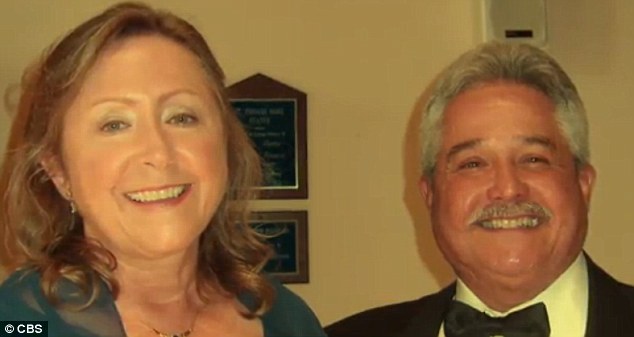The following is an excerpt from OpinionJournal.com’s “Best of the Web” written by the editor, James Taranto.

Mario Hernandez with his wife.
The Accidental Alien
Fifty-eight-year-old Mario Hernandez was born in Cuba and came to the U.S. with his parents in the 1960s, a few years after his native land was taken over by communists. This Wednesday, the New York Times reports from Miami, he became an American citizen: “It turns out that Mr. Hernandez, despite having voted in every major election since Jimmy Carter’s in 1976 and working for two state agencies and two federal agencies, including as a longtime supervisor for the Bureau of Prisons, was not even a United States resident.”
What went wrong? It’s a story of personal oversight and bureaucratic incompetence. On his arrival, he “was given open-ended parole, which allowed him to live and work in the United States but did not make him a [legal] resident,” the Times explains. He assumed–wrongly, as it turned out–that his parents had completed his citizenship paperwork. He enlisted in the Army in 1975 and “said he was given what he thought was a citizenship oath.” It wasn’t. “Several federal background checks” turned up nothing amiss with his immigration status.
But when he decided to take a retirement cruise, “he could not find any trace of the naturalization papers he needed to get a passport.” He filed for citizenship and was denied, even though it was his right because he served in the military during the Vietnam Era (which is legally defined as having ended in May 1975). A spokesman for the U.S. Citizenship and Immigration Services put out a statement apologizing “for handling Mr. Hernandez’s application as a regular naturalization case rather than a military one.”
Hernandez’s case “represents a broken immigration system,” his lawyer, Elizabeth Ricci, tells the Times. No doubt about that. But it represents something else, too: a broken voting system. According to the Times, Hernandez cast improper votes in “every major election” since 1976. That’s at least 10 of them, twice as many if it includes midterms.
Noncitizens, including legal resident aliens, are forbidden to vote in every state. States that have sought to incorporate verification of citizenship into the voter-registration process have encountered obstacles from the Obama administration and denunciations from the New York Times.
In March, in a case called Kobach v. U.S. Election Assistance Commission, a federal judge held that the commission had acted improperly when it refused to incorporate Arizona’s and Kansas’ citizenship-verification requirements into the federal “motor voter” form. As the Times explained in an editorial:
The federal form requires only that voters state under oath that they are citizens, and while the commission includes certain state-specific instructions on the form, it denied the request by Kansas and Arizona because it found no evidence that noncitizens registering to vote was a “significant problem” in either state.
The Times sees the question through a partisan lens: Democratic voters, the editorial claims, tend to “struggle to come up with the required documents, which include a birth certificate, passport or driver’s license.” The Times asserts that citizenship-verification requirements are but a “ruse” to “keep eligible voters from the polls.”
But as the case of Mario Hernandez illustrates, without verification, there is nothing to prevent noncitizens from voting. His is not an example of fraud, merely an error that was both unintentional and harmless, since he believed he was a citizen and was legally entitled to become one. But if Florida required proof of citizenship as a prerequisite for voter registration, Mario Hernandez likely would have become a citizen years ago.
For more “Best of the Web” click here and look for the “Best of the Web Today” link in the middle column below “Today’s Columnists.”



